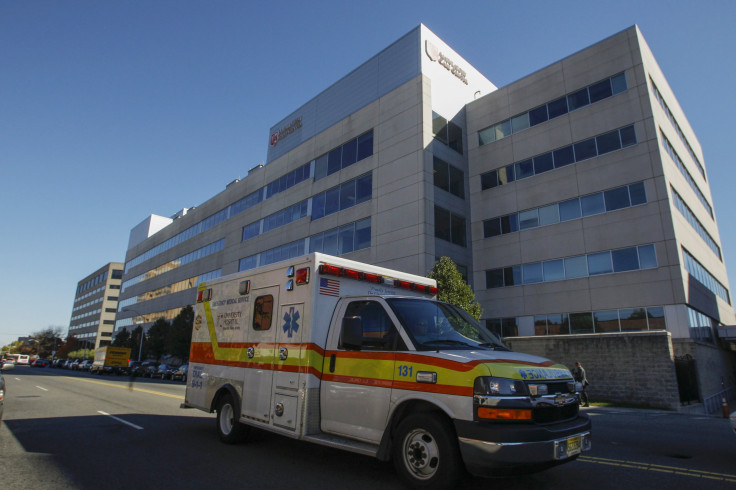Breaking: Possible Ebola Patient Rushed To Maryland Hospital For Testing

A hospital in Baltimore told staff to prepare for a “potential Ebola patient” Monday night. The University of Maryland Medical Center in downtown Baltimore sent a memo saying it had accepted the patient from the state health department, later confirming the details on its Twitter account.
“We have accepted the transport by DHMH [Department of Health and Mental Hygiene] of a potential Ebola patient for further assessment,” the hospital said in a memo to staff, according to a Baltimore news station. “They are appropriately isolated and receiving further assessment and care.”
The hospital told staff the patient will be isolated in the emergency department as tests for the rare and deadly infection, caused by a strain of the Ebola virus, are performed. The news comes as the Centers for Disease Control and Prevention weighs in on an intense debate about methods to prevent the spread of the virus. It has revised its guidelines to recommend hospitals monitor workers who return from trips to treat the outbreak of Ebola in West Africa.
UMMC has accepted a transfer at the direction of DHMH (Public Health) of a potential Ebola patient for further assessment.
— U. of MD Med. Center (@UMMC) October 27, 2014They are appropriately isolated and receiving further assessment and care.
— U. of MD Med. Center (@UMMC) October 27, 2014“Ebola is spread through direct contact with blood and body fluids of a person already showing symptoms of Ebola,” the CDC has said. “Ebola is not spread through the air, water, food or mosquitoes.”
© Copyright IBTimes 2024. All rights reserved.




















